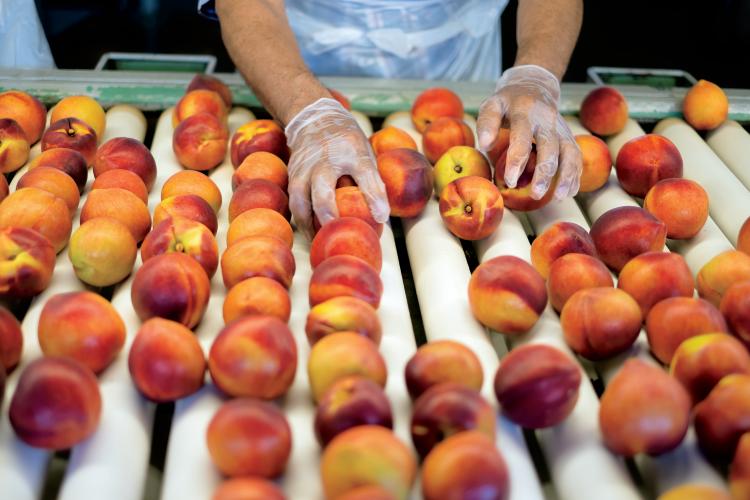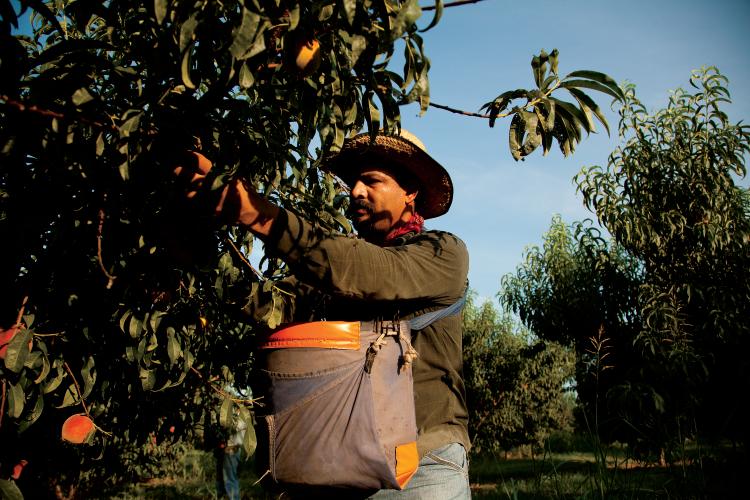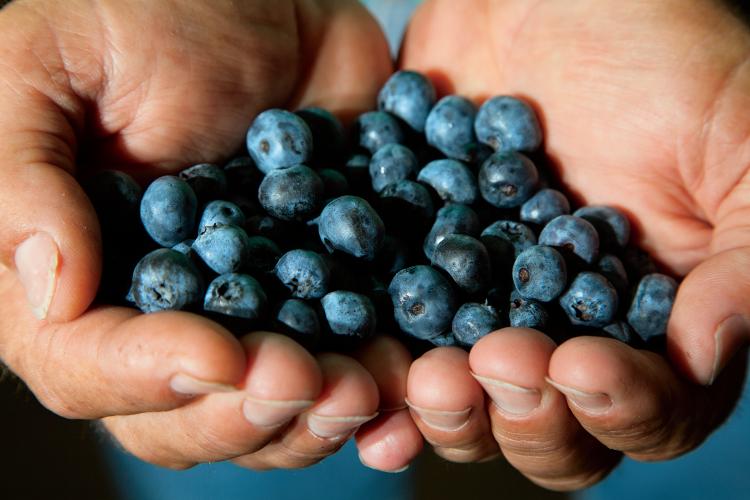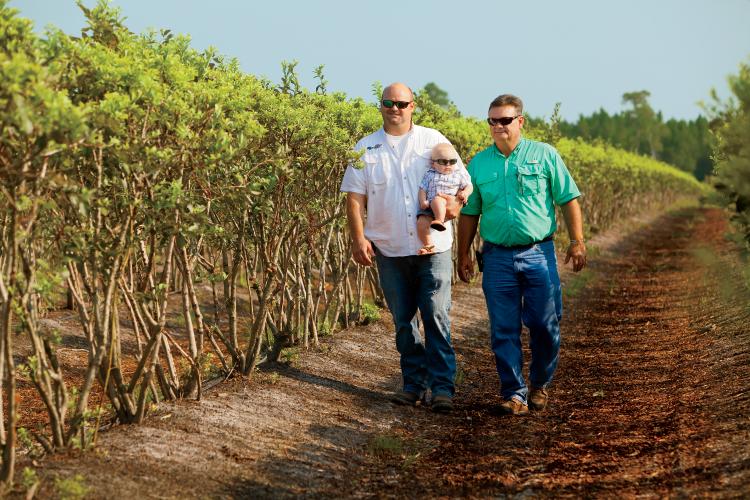Home > Georgia > Georgia Crops & Livestock > Peaches and Blueberries Boost Georgia’s Economy
Peaches and Blueberries Boost Georgia’s Economy

Whether it’s a juicy, ripe peach or a handful of sweet blueberries, Georgia fruit means big taste. It also means big business.
With nearly 58 million pounds of blueberries and 130 million pounds of peaches grown each year in the state, these fruits pack an economic punch. In fact, with a total farmgate value of more than $133 million, blueberries are responsible for nearly 30 percent of the value of all fruits and nuts grown in Georgia. At $47 million, peaches represent more than 10 percent.
The economic value of both fruits is tied to their strong nutritional value. Consumers are increasingly looking for delicious, low-calorie ways to stay healthy, and blueberries and peaches provide it. Both are a simple, tasty, natural way to get the health benefits of antioxidants and a wide variety of vitamins and minerals.
The Peach State
At Dickey Farms, visitors can sit in a rocker on the porch of an historic building and enjoy a nutritious, mouth-watering peach or some of the farm’s famous peach ice cream. From that same rocker, they can watch thousands of freshly picked peaches make their way through the packinghouse operation. It’s a peaceful setting, but it’s also a bustling business.

“My grandfather planted the first peach tree in 1897, and I started tagging along with him when I was 4 or 5 years old,” says Robert Dickey II, also known as “Mr. Bob.” Today, that business consists of 1,000 acres of peaches as well as the state’s oldest, continuously operating peach packinghouse. Dickey, his son, Robert III, and daughter-in-law, Cynde, grow 25 varieties of peaches, operate the packinghouse and retail and mail-order business, and employ more than 100 workers at the height of the season.
Mr. Bob explains that they pick the peaches by hand, bring them in from the orchards and then run them through a hydro-cooler, essentially an ice-water bath that lowers the temperature of the peach to retard the ripening process so the fruit won’t be overripe when it reaches the consumer. Next, the peaches go through several graders that remove leaves and cull the least desirable fruit. The remaining peaches are sorted by an electric sizer, packed and shipped to arrive in stores within three days of picking.
Managing the production of the peaches also means tending the orchards. Each year trees must be pruned, fertilized and monitored for pests.
“The rule of thumb is that the life of a peach tree is about 15 years,” says Mr. Bob. “In the first two years of planting a new tree, you won’t have peaches. In the third year, you’ll get some. The trees bear the most fruit in years 4 to 15.”
What makes Georgia a great place to grow those peach trees? Robert says that climate in middle Georgia is key.
“We get the adequate number of cold hours needed, and most years we are free from spring frosts,” he says. Georgia peaches are also in season earlier than those grown in the north.
“Georgia is the third-largest producer in the country. We have an advantage because we’re the first in getting peaches to market compared to states like Michigan and Pennsylvania.”

Robert also says that the long, proud history of multi-generational peach farms in the state is another key to success.
“The growing and management expertise has been passed down, and so has the love for the farm and the work. It’s a business that’s in our blood.”
Sweet Georgia Blue

Blueberry farms may not yet be a multi-generational business across Georgia, but if production numbers in the past decade are any indication, the industry is poised to establish its own long and strong tradition in the state.
Joe Cornelius, president of J & B Blueberry Farms in Manor, was an early adopter, planting 60 acres of blueberries in 1989 when total blueberry acreage in Georgia was about 3,000 to 4,000. Today, Cornelius farms 170 acres of blueberries, and Georgia has one-third of the total U.S. acreage of blueberries, with nearly 22,000 acres of the fruit growing across the state.
“Just ten years ago, we were producing 18 million pounds of blueberries,” says Cornelius, who also serves as chairman of the Georgia Blueberry Commission. “Now we’re over 60 millions pounds. In the next five years, I wouldn’t be surprised to see the state go over 100 million pounds.”
Cornelius says that research showing the health benefits of antioxidants in blueberries has increased demand, and Georgia farmers are rising to the challenge of producing the increasingly popular fruit.

“Our soil is conducive for farming blueberries. Plus, our climate and the varieties we grow provide us with a very long production season, starting in mid-April with Highbush and going until the end of July with the RabbitEye variety. That certainly is a competitive advantage and what has established Georgia as the third-largest blueberry producer in the country in 2011.”



